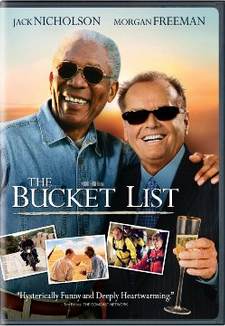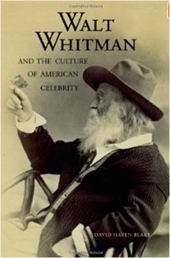Jack and Morgan hugely entertaining in terminal vehicle (8/10)
 Edward Cole: I envy people who have faith, I just can’t get my head around it.
Edward Cole: I envy people who have faith, I just can’t get my head around it.
Carter Chambers: Maybe because your head’s in the way.
From the special features we learn screenplay writer, Justin Zackham, came up with this idea of writing down a list of things one would want to accomplish should one learn one’s time on earth was short. Oddly enough, Zackham made “making a movie about a ‘bucket list'” one of the items on his own personal bucket list—though, so far as we know, Zackham doesn’t have a terminal affliction—and The Bucket List became his Hollywood breakout story. In the movie the Morgan Freeman character, Carter Chambers, comes up with the list idea: he remembers it from a philosophy class in college. Continue reading

